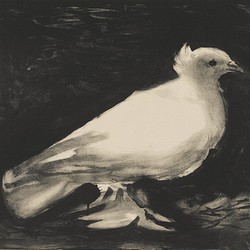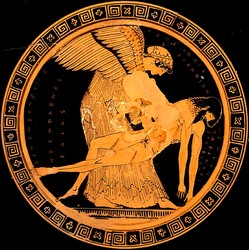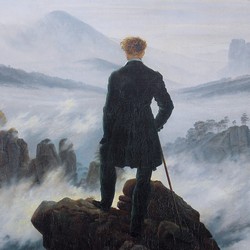- Details

During the second week of the Schubertíada, we're listening to the three Schubert's great cycles performed by three different singers who, in addition, have also three different voices: baritone Andrè Schuen will sing Schwanengesang, tenor Christoph Prégardien Die schöne Müllerin and mezzo-soprano Joyce DiDonato, Winterreise. We've listened so far to some songs from the three cycles, so if you want to go over them, that's a lot of (wonderful) work!
- Details

August arrived, it's the time for the Schubertíada. The four weeks of this month will be dedicated to going over eight of the concerts in Vilabertran, paying attention to the songs we listened so far. The ninth concert is that of the Acadèmia and we won't know the programme until a couple of days before so I don't think I can talk about it. As always, I hope these short posts are useful to those of you attending the recitals, and all the readers will have a new song.
- Details

This lied was composed by Franz Schubert in october 1816 for voice and piano. The publication was orderded by Cappy and Diabelli in the 29 may, 1821. Dedicated in “respet” to Johamm Ladislaus von Pyrker, Venice patriarch. The poem was written by Georg Philipp Schmidt von Lübeck and belongs to Op.4, that groups together 3 lieders: Der Wanderer, D.493; Morgenlied, D.685 (poem by Zacharias Werner) and Wandrers Nachtlied I, D.224 (poem by Johann Wolfgang von Goethe)
- Details

Mit Myrthen und Rosen is the last Lied of the work Liederkreis op.24 by Robert Schumann. Due to its duration and its own value, it is the only one that is occasionally interpreted separately, although, in my opinion it takes on all its poetic meaning if it really is the culmination of the cycle and the story that happens to the poet along the previous 8 songs.
- Details

Von ewiger Liebe (Of eternal love), op. 43 No. 1 is a Lied composed in 1864 by Johannes Brahms, when he was 31 years old, in the height of literary romanticism, a movement that embodies the ideals of individualism, sentimentality, subjectivity and irrationality, with a great interest in nature and the exaltation of the figure of the hero. All these qualities are found in this poem, although in many editions it appears as the work of Josef Wenzig, it is actually August Heinrich Hoffmann von Fallersleben. In fact, Fallersleben composed this poem in 1837 from a free translation of Leopold Haupt of a Volkslieder (folk song) written in the dialect of the village of Sober, a Slavic western village recognized by Germany as a national minority.












